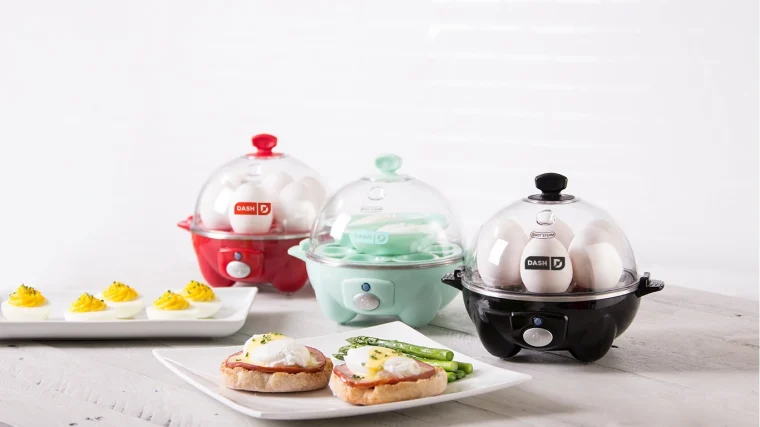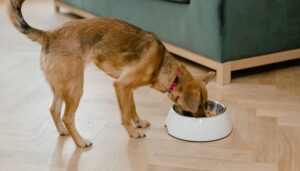
If you own a Dash Egg Cooker or are considering getting one, you may be wondering about the correct amount of water needed for optimal results. The water level plays a crucial role in achieving perfectly cooked eggs with the desired texture. In this article, we will provide you with comprehensive guidelines to help you determine how much water to use for your Dash Egg Cooker. Whether you prefer soft-boiled, medium-boiled, or hard-boiled eggs, we’ve got you covered. Let’s dive in and explore the proper guidelines for achieving egg-cellent results!
1. Understanding the Dash Egg Cooker
Before we delve into the specifics of water levels, let’s briefly understand the Dash Egg Cooker itself. The Dash Egg Cooker is a compact and convenient kitchen appliance designed for effortlessly cooking eggs. It features an easy-to-use interface and various settings to achieve different levels of egg doneness. Whether you prefer soft, medium, or hard-boiled eggs, the Dash Egg Cooker takes the guesswork out of the equation.
2. How much Water for a Dash Egg Cooker? – Overview
Determining the correct amount of water for your Dash Egg Cooker depends on the level of doneness you desire for your eggs. Here’s a general overview of the water levels recommended for different levels of egg doneness:
- Soft-Boiled Eggs: Fill the measuring cup provided with water to the “Soft” line.
- Medium-Boiled Eggs: Fill the measuring cup to the “Medium” line.
- Hard-Boiled Eggs: Fill the measuring cup to the “Hard” line.
3. Soft-Boiled Eggs: Getting the Perfect Consistency
If you enjoy eggs with a runny yolk and a soft, custard-like texture, the soft-boiled method is ideal for you. To achieve the perfect soft-boiled eggs using your Dash Egg Cooker, follow these steps:
- Fill the measuring cup to the “Soft” line with cold water.
- Pour the water into the heating plate of the Dash Egg Cooker.
- Use the provided pin or a small utensil to puncture the rounded end of each egg.
- Place the eggs on the heating plate.
- Close the lid and press the power button.
- The Dash Egg Cooker will automatically shut off when the eggs are ready.
4. Medium-Boiled Eggs: Finding the Sweet Spot
Medium-boiled eggs strike a balance between a runny yolk and a firmer white. If this is your preference, follow these guidelines to achieve medium-boiled eggs using the Dash Egg Cooker:
- Fill the measuring cup to the “Medium” line with cold water.
- Transfer the water to the heating plate.
- Puncture the rounded end of each egg.
- Arrange the eggs on the heating plate.
- Close the lid and power on the appliance.
- Your eggs will be perfectly cooked to a medium doneness level.
5. Hard-Boiled Eggs: Achieving a Fully Cooked Center
For those who prefer fully cooked eggs with a solid yolk, hard-boiled eggs are the way to go. Here’s how you can achieve hard-boiled eggs using your Dash Egg Cooker:
- Fill the measuring cup to the “Hard” line with cold water.
- Empty the water into the heating plate.
- Use the pin or a utensil to make a small hole in the rounded end of each egg.
- Place the eggs onto the heating plate.
- Close the lid and activate the Dash Egg Cooker.
- Enjoy perfectly hard-boiled eggs with ease.
6. Factors Affecting Water Levels
While the provided guidelines for water levels are generally accurate, several factors can affect the outcome. Factors such as egg size, altitude, and personal preference can influence the required amount of water. Consider the following factors when determining the water level for your Dash Egg Cooker:
- Egg Size: Larger eggs may require slightly more water than smaller ones.
- Altitude: High-altitude areas may require adjustments to the water levels due to variations in boiling points.
- Personal Preference: Experiment with water levels to find the perfect consistency that suits your taste.
7. Tips and Tricks for Optimal Results
To enhance your experience with the Dash Egg Cooker and achieve consistently great results, consider the following tips:
- Use cold water: Always start with cold water for optimal cooking results.
- Follow the recommended water levels: Stick to the recommended water levels provided by the Dash Egg Cooker for a foolproof outcome.
- Experiment with cooking times: If you prefer your eggs slightly softer or firmer, adjust the cooking time accordingly.
- Use the pin or utensil provided: Puncturing the eggs prevents them from cracking during the cooking process.
- Allow eggs to cool: After cooking, place the eggs in cold water to cool them down and make them easier to peel.
How to Use the Dash Egg Cooker | Demo and Honest Review
Frequently Asked Questions (FAQs)
FAQs
Can I use hot water instead of cold water in the Dash Egg Cooker?
It is recommended to use cold water when cooking eggs in the Dash Egg Cooker. Cold water ensures even cooking and prevents the eggs from cracking.
What should I do if the eggs crack during the cooking process?
If the eggs crack during cooking, ensure that you’ve pierced the rounded end of each egg with the provided pin or a utensil. Cracks can also occur due to rapid temperature changes or old eggs. Using fresh eggs and allowing them to come to room temperature before cooking can help minimize cracking.
Can I cook other foods besides eggs in the Dash Egg Cooker?
The Dash Egg Cooker is primarily designed for cooking eggs. While it is not recommended to cook other foods in the appliance, you can experiment with certain foods like small vegetables or dumplings. Ensure that they are suitable for steam cooking and won’t affect the performance or cleanliness of the cooker.
How long does it take to cook eggs using the Dash Egg Cooker?
The cooking time for eggs in the Dash Egg Cooker depends on the desired doneness level and the number of eggs being cooked. Generally, it takes around 10-15 minutes to cook a batch of eggs. Refer to the instruction manual for more specific guidelines.
Are the measuring lines in the Dash Egg Cooker’s cup accurate?
The measuring lines on the Dash Egg Cooker’s cup are designed to provide accurate water levels for optimal cooking. However, it’s always a good idea to double-check the measurements using a separate measuring cup or scale for precision.
Can I open the lid during the cooking process to check on the eggs?
It is best to avoid opening the lid during the cooking process. Opening the lid can cause a loss of steam and may result in uneven cooking. Trust the Dash Egg Cooker’s automatic shut-off feature to indicate when your eggs are ready.
Conclusion
Properly measuring the water for your Dash Egg Cooker is essential for achieving consistently delicious and perfectly cooked eggs. Whether you prefer soft-boiled, medium-boiled, or hard-boiled eggs, following the guidelines provided in this article will help you achieve your desired results. Remember to consider factors such as egg size, altitude, and personal preference when determining the ideal water level. With the Dash Egg Cooker and these proper guidelines, you can enjoy hassle-free cooking and egg-cellent outcomes every time.







